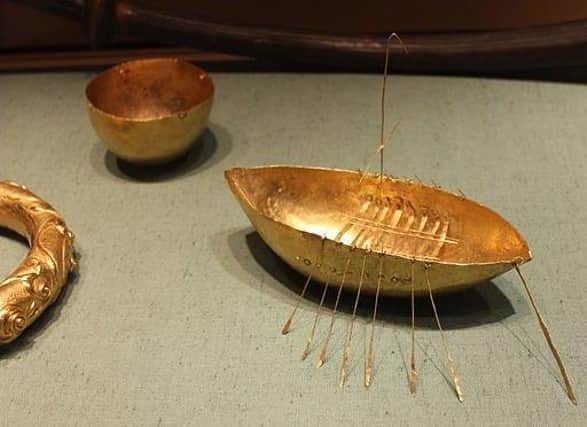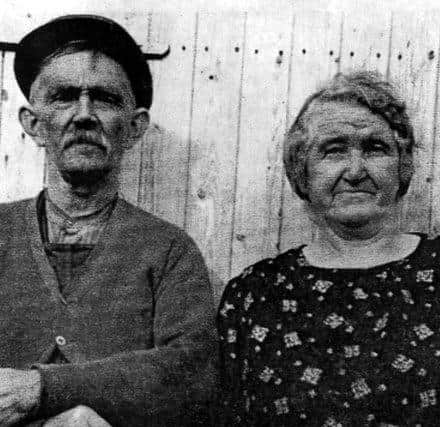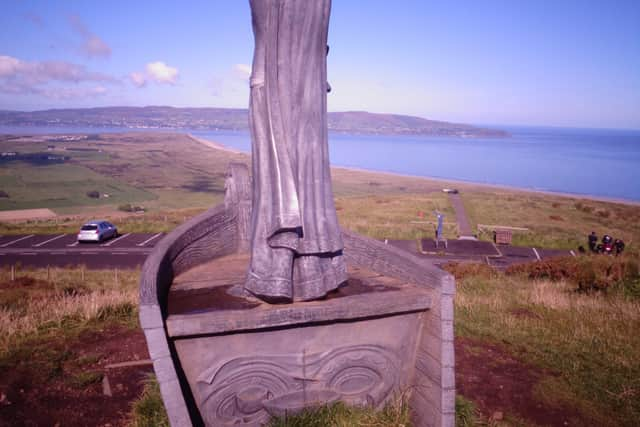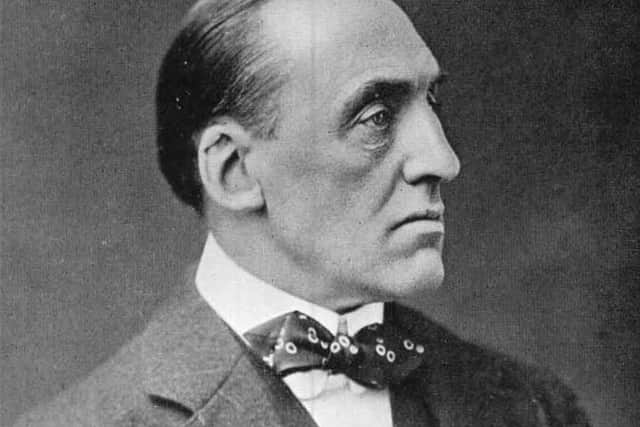Sad , sad postscript to discovery of priceless golden Broighter hoard


Writing from his home in Ontario, Mitchell Smyth headed his note ‘Sad, sad, sad.’
Readers of the vivid Ulster tales and international stories that Mitchell has contributed to this page will know that he comes from Ballycastle and was a journalist here before moving to Canada where he became a very successful travel writer.
Advertisement
Hide AdAdvertisement
Hide AdMany of you will also know the outline of the story he’s sharing here today, but like Roamer, you may not be aware of its very poignant postscript.


The rest of this page is Mitchell’s.
In 1964, as a reporter in the Northern Constitution, Coleraine, I wrote the obituary of Tom Nicholl, and I thought then, as I think now, that he was the central figure in what I believed to be one of the saddest Ulster stories of the last century.
Tom Nicholl didn’t die in poverty, but certainly not in the financial position that he seemed to deserve, for it was he who discovered the so-called Broighter Hoard, a priceless treasure of ancient gold artifacts.
He even had to use some of his per diem (daily) expenses, from a London court case over the treasure, to pay for his wedding to the young woman who helped him clean the mud from his discovery.


And he never did get to Dublin to see his find displayed.
That, he said, was one of his great regrets.
Advertisement
Hide AdAdvertisement
Hide AdMany are familiar with the Broighter story - if not here is a recap.
Then we get back to the sadness.


One February day in 1896 farm labourer Nicholl’s plough struck some metal objects in a field at Broighter, near Limavady.
He took the mud-encrusted items to his employer’s farm where the maid, Maggie McLaughlin, helped him wash them.
Slowly, the treasure emerged: a thick gold collar decorated with seahorses, a gold boat complete with oars and mast, and bracelets and necklaces.
Advertisement
Hide AdAdvertisement
Hide AdThe National Museum of Ireland, where the fabulous hoard now resides, says the objects may have been an offering to a Celtic god, ‘presumably in the first century BC.’
At that time the waters of Lough Foyle covered part of the flood plain at Broighter and it is widely assumed that the Druids put the golden objects in the water to appease the god Manannan Mac Lir, known as Ireland’s King Neptune.
Through two millennia the waters receded and the gold ornaments sank in the mud until Tom Nicholl’s plough unearthed them in 1896.
Tom’s employer sold the hoard for 200 pounds to a jeweller in Derry City. That would be 24,800 pounds today, according to the U.K. Inflation Calculator.
Advertisement
Hide AdAdvertisement
Hide AdEventually the British Museum bought the hoard for 600 pounds (74,400 pounds in today’s money).
And after a celebrated court case in London, the treasure - Ireland’s greatest ever collection of gold ornaments - came back to Ireland, to what is now the National Museum in Dublin.
Tom Nicholl went to London to testify at the hearing.
Barrister Sir Edward Carson, later to become famous as a leader of the anti-Home Rule movement in Ulster, represented the Irish Academy in court and won the case.
And here is where the true sadness of the story comes in.
As noted earlier, Tom Nicholl doesn’t appear to have pocketed much, if anything, from his find, except that he used some of his expenses money from the London court case to partially fund his marriage to Maggie McLaughlin, the maid at his employer’s farm who helped him scrape the mud off the gold artifacts that February day in 1896.
Advertisement
Hide AdAdvertisement
Hide AdHis employer, as noted, received the equivalent of 24,800 pounds.
Another note of sadness: Nicholl’s grand-daughter Maureen Boyd has been quoted as saying: “It was one of Tom Nicholl’s great regrets in life that he never saw the Broighter Hoard displayed in the National Museum.”
You have to wonder why his employer didn’t finance a trip to Dublin.
The treasure was returned to Limavady, the closest town to Broighter, for that town’s 400th anniversary a few years ago.
Advertisement
Hide AdAdvertisement
Hide AdAnd tourists can view it in the Limavady visitor centre, where it is displayed, in hologram and pictures.
At a viewing point on a hill at Gortmore, overlooking Broighter, there is a statue of the pagan god Manannan Mac Lir, standing in a representation of the prow of a boat.
His hands are raised to the heavens, as if giving thanks for the treasure given to him as a ‘voiture’. (A voiture refers to articles offered to a deity in gratitude or devotion).
The hoard received massive publicity all over the British Isles when the British Museum acquired it in 1897 and this sparked a mini-gold rush to Broighter. But the would-be argonauts departed empty-handed.
Advertisement
Hide AdAdvertisement
Hide AdEarlier, when Tom Nicholl’s employer realized what the treasure might be worth, it was thought that Maggie McLaughlin and Tom might have accidentally flushed more ornaments down the sink when washing them.
Drains were dug up but nothing more was found.
Incidentally, the legend of the sea god apparently persists to this day in County Londonderry.
I’m told that people say “Manannan is angry today” when Lough Foyle is rough.
A message from the Editor:
Thank you for reading this story on our website. While I have your attention, I also have an important request to make of you.
Advertisement
Hide AdAdvertisement
Hide AdIn order for us to continue to provide high quality and trusted local news on this free-to-read site, I am asking you to also please purchase a copy of our newspaper whenever you are able to do so.
Our journalists are highly trained and our content is independently regulated by IPSO to some of the most rigorous standards in the world. But being your eyes and ears comes at a price. So we need your support more than ever to buy our newspapers during this crisis.
With the coronavirus lockdown having a major impact on many of our local valued advertisers - and consequently the advertising that we receive - we are more reliant than ever on you helping us to provide you with news and information by buying a copy of our newspaper when you can safely.
You can also enjoy unlimited access to the best news from across Northern Ireland and the UK by subscribing to newsletter.co.uk
Advertisement
Hide AdAdvertisement
Hide AdWith a digital subscription, you can read more than five articles, see fewer ads, enjoy faster load times, and get access to exclusive newsletters and content. Visit https://www.newsletter.co.uk/subscriptions now to sign up.
Thank you